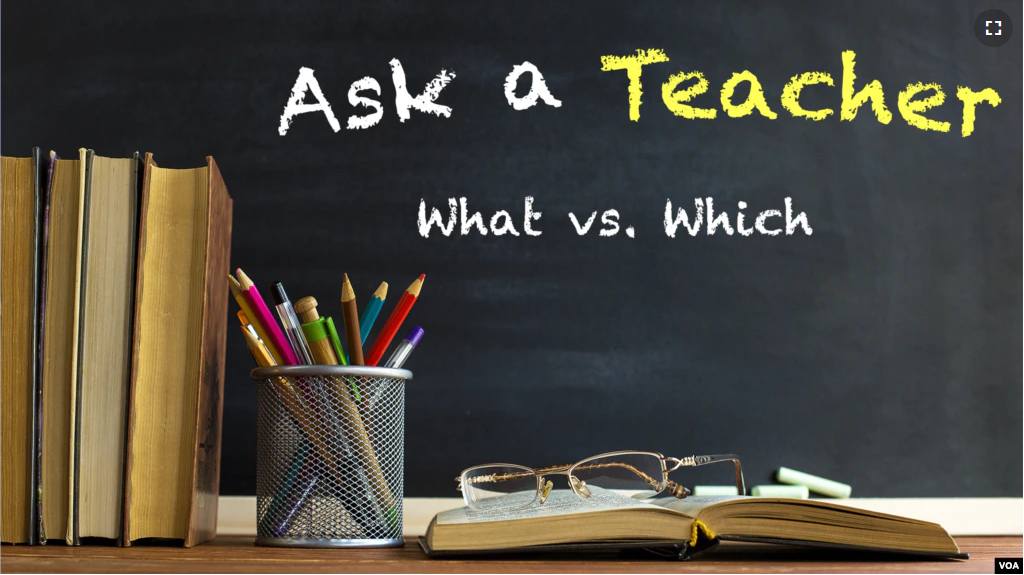Hello! This week on Ask a Teacher, we will answer a question from Zehra, a reader of our website, about the difference between using the question words “what” and “which.”
Question:
Hello,
Could you please tell me which one is correct? “What color is missing?” or “Which color is missing?”
Zehra
Answer:
Dear Zehra,
Thank you for your question! Either of these questions could be correct.
“What” and “which” can both be used to form a question. So, either of these questions could be correct. It depends on the situation and the information we are seeking. Let us consider each question word more closely.
What
When we ask a question using “what,” we are asking for information because we do not know the answer. The information can be about things or actions.
For example:
What is your favorite kind of pizza?
In this example, the person who asks the question does not know what kind of pizza the other person likes.
There can be an unlimited number of possible answers. This is important when trying to decide between the two question words.
A person answering the pizza question could say a favorite combination of toppings, like meat and cheese, or even a favorite style of pizza.
Which
We use “which” to ask questions about specific information or when we are presenting a set of choices.
We may have some background information that we want to explore more by using a “which” question.
For example, if I am in a parking lot with my friend and I know she has a car but am unsure which is hers, I could ask a question using “which.”
Which is yours, the blue truck or the red car?
Here, the question deals with a limited choice. So we use the question word “which.”
Summary
We can use an example using geography to easily show the difference between “what” and “which.”
What is the capital of the United States?
The answer is unknown, and the choices are unlimited.
Which is the capital of the United States: Philadelphia or Washington, D.C.?
There are only two choices.
Using “what” suggest that the questioner does not know the answer and that there is no limit to the number of possible answers.
If you choose “which” as your question word, you may have prior knowledge and you are asking for information that is more specific. You may also be limiting the decision to a few choices.
Please let us know if these examples and explanations have helped you, Zehra!
What question do you have about American English? Send us an email at learningenglish@voanews.com
And that’s Ask a Teacher.
I’m Faith Pirlo.
Faith Pirlo wrote this lesson for VOA Learning English.
Do you have a question for the teacher? We want to hear from you. Write to us in the Comments Section.
______________________________________________________________
Words in This Story
toppings – n. ingredients that are placed on top of a main dish, like on pizza or ice cream
style –n. a particular way of doing, preparing or designing something
prior – adj. existing earlier in time
